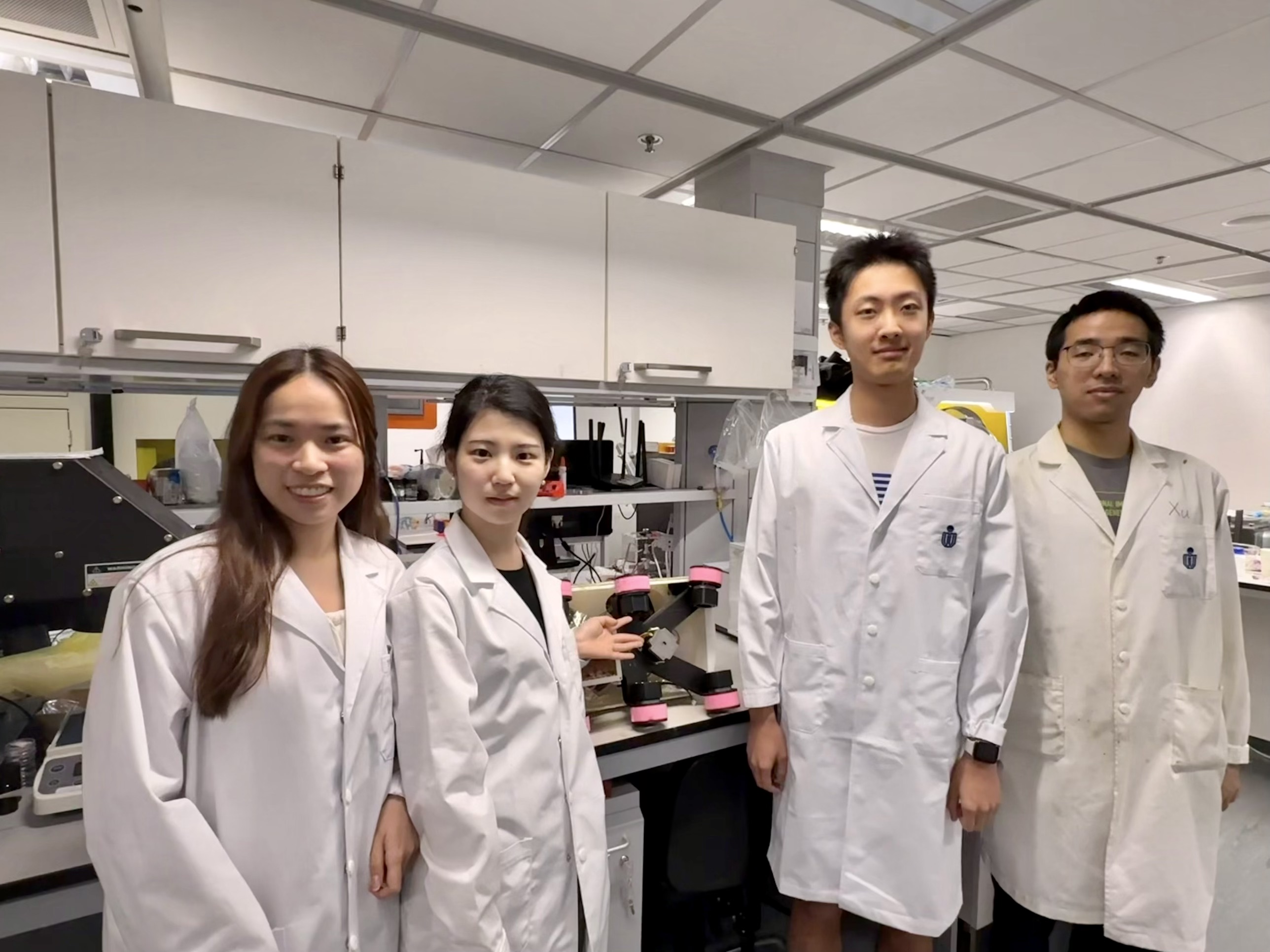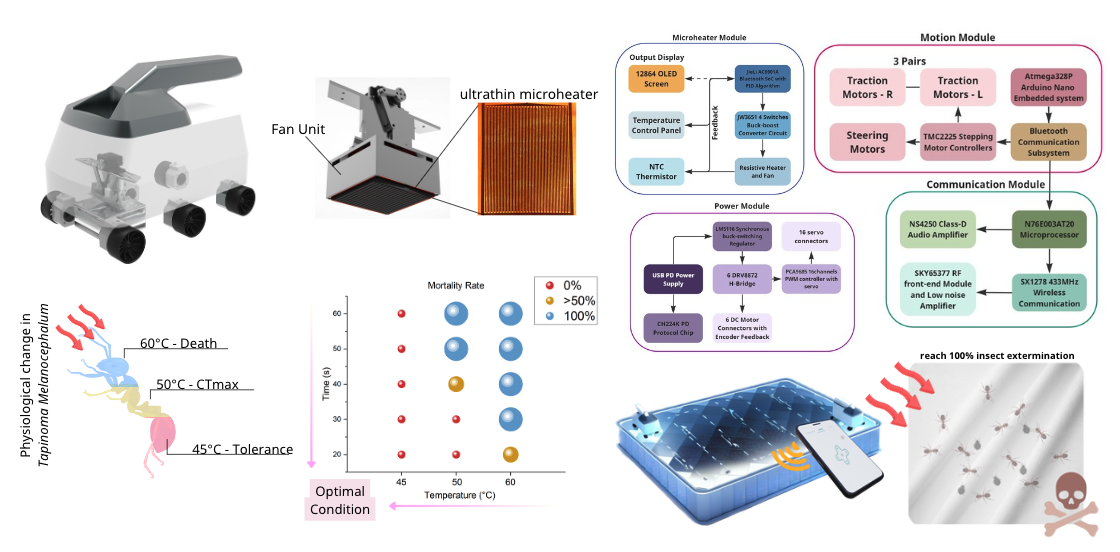Insects such as bed bugs and fleas have long posed a household hazard, often associated to allergic reactions and infections. This has been exacerbated by the widespread infestation of bed bugs across several countries in Asia and Europe in late 2023, prompting concerns about effective management. Current insect control approaches primarily use chemical insecticides, valued for their rapid action and effectiveness. Nonetheless, featured active compounds such as carbamate or organophosphate are classified as Class 2A/2B carcinogens by World Health Organisation, imposing direct harmful threat to human users.
To address the potential health risks associated with conventional chemical insecticides and effective insect control, the research team led by Prof. Mitch LI and his postgraduate students from HKUST’s Division of Integrative Systems & Design (ISD) has developed an innovative autonomous robotic microheater. Manufactured using advanced laser technology, this device offers versatile applications in household, hospitality, healthcare, and food processing industries, where effective insect control is essential.
This novel autonomous robotic micro-heater is a high-speed, porous resistive heating module created through high-power pulsed laser-scribing, which can rapidly heat up to 60°C in under 3 seconds. Equipped with machine learning and real-time sensors, it effectively sends heat to specific regions through convection. Experimental validation confirmed its robust capability to eradicate household ants (Tapinoma melanocephalum) at 60°C within 30 seconds.
With its impressive performance in insect removal, this autonomous robotic microheater not only addresses the health risks associated with conventional insecticides but also demonstrates significant potential for application across various industries. Prof. Li says, “This innovation could revolutionize insect control methods, contributing to a cleaner, healthier, and better environment for everyone.”
The research paper titled “Autonomous Robotic Ultrathin Laser-Scribed Microheater For Effective Insect Control” was recently published in Advanced Intelligent Systems, a journal focus on excellent artificial systems that respond to stimuli through advanced systems such as automation, artificial intelligence and smart sensing systems.








